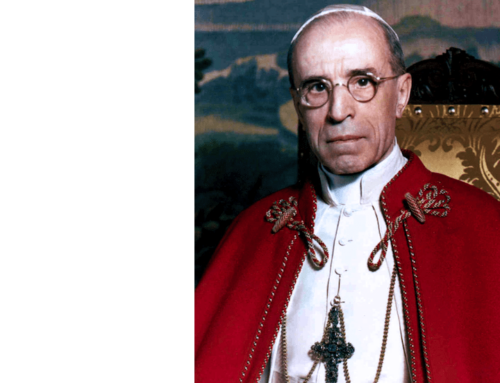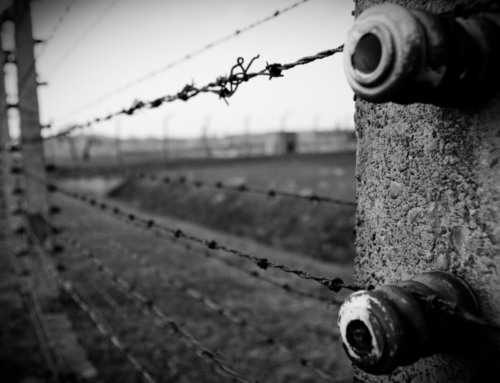|
By Sr. Margherita Marchione, Ph.D. Pope Pius XII was not a German collaborator nor was he pro-Nazi. Neither was he inactive nor silent. As a member of the Catholic Church, I resent the blatant accusations against the diplomacy of the Pope and the Church during World War II. This is not only indecent journalism but it also an injustice toward a man who saved more Jews than any other person, including Oscar Schindler and Raoul Wallenberg. Unfortunately even in the new Holocaust Museum at Battery Park in New York City the Pope is unjustly criticized. It is historically inaccurate to charge him with “silence.” Should the media be allowed to perpetuate such falsehoods? Documents prove that these misrepresentations are untrue. Pius XII spoke out as much as he could, and was able to do more with actions than with words. To the very end, he was convinced that, should he denounce Hitler publicly, there would be retaliation. And there was. Whenever protests were made, treatment of prisoners worsened immediately. Robert Kempner, the American who served as deputy chief of the Nuremburg war-crimes tribunal, wrote: “All the arguments and writings eventually used by the Catholic Church against Hitler only provoked suicide; the execution of Jews was followed by that of Catholic priests.” Pius XII—through his public discourses, his appeals to governments, and his secret diplomacy—was engaged more than any other individual in the effort to curb the war and rebuild the peace. Documents show that Pius XII was in contact with the German generals who sought to overthrow Hitler. Documents also show that the Jewish community received enormous help: Pius XII’s personal funds ransomed Jews from Nazis. Papal representatives in Croatia, Hungary, and Romania intervened to stop deportations. The Pope called for a peace conference involving Italy, France, England, Germany, and Poland in 1939, in a last-minute bid to avert bloodshed. An interesting document is the testimony of Albert Einstein who, disenchanted by the silence of universities and editors of newspapers, stated in Time magazine (December 23, 1940): “Only the Church stood squarely across the path of Hitler’s campaign for suppressing truth. …The Church alone has had the courage and persistence to stand for intellectual truth and moral freedom.” Indeed, executing the directives of Pope Pius XII, religious men and women opened their doors to save the Jews. Never were the Jews and the Vatican so close as during World War II. The Vatican was the only place on the continent where they had any friends. Pope Pius XII’s response to the plight of the Jews was to save as many as possible. Yet little has been done to stop the criticism of Pius XII that began in 1963, when Rolf Hochhuth portrayed him as a Nazi collaborator in the play “The Deputy.” In contrast to the image suggested by this play, Vatican records indicate that the Church operated an underground railroad that rescued 800,000 European Jews from the Holocaust. After a careful study of available documents, whoever is interested in the truth will no longer condemn the actions of Pope Pius XII’s words and the Catholic Church during this tragic period. An honest evaluation of Pope Pius XII’s words and actions will exonerate him from false accusations and show that he has been unjustly maligned. The Pope neither favored nor was favored by the Nazis. The day after his election (March 3, 1939), the Nazi newspaper,Berliner Morganpost stated its position clearly: “the election of Cardinal Pacelli is not accepted with favor in Germany because he was always opposed to Nazism.” The New York Times editorial (December 25, 1942) was specific: “The voice of Pius XII is a lonely voice in the silence and darkness enveloping Europe this Christmas…He is about the only ruler left on the Continent of Europe who dares to raise his voice at all.” The Pope’s Christmas message was also interpreted in the Gestapo report: “in a manner never known before…the Pope has repudiated the National Socialist New European Order [Nazism]. It is true, the Pope does not refer to the National Socialists in Germany by name, but his speech is one long attack on everything we stand for. …Here he is clearly speaking on behalf of the Jews.” Perhaps the rest of the world should interpret the Pope’s words as they were meant and, undoubtedly, correctly understood by the Nazis, i.e.: POPE PIUS XII WAS ALWAYS OPPOSED TO NAZISM. The Jewish Community publicly acknowledged the wisdom of Pope Pius XII’s diplomacy. In September 1945, Dr. Joseph Nathan—who represented the Hebrew Commission—stated “Above all, we acknowledge the Supreme Pontiff and the religious men and women who, executing the directives of the Holy Father, recognized the persecuted as their brothers and, with great abnegation, hastened to help them, disregarding the terrible dangers to which they were exposed.” In 1958, at the death of Pope Pius XII, Golda Meir sent an eloquent message: “We share in the grief of humanity. …When fearful martyrdom came to our people, the voice of the Pope was raised for its victims. The life of our times was enriched by a voice speaking out about great moral truths above the tumult of daily conflict. We mourn a great servant of peace.” On the Church and the Holocaust Excerpts from books and periodicals that have covered this subject:
|
| Copyright © 1997-2011 by Catholic League for Religious and Civil Rights. *Material from this website may be reprinted and disseminated with accompanying attribution. |




